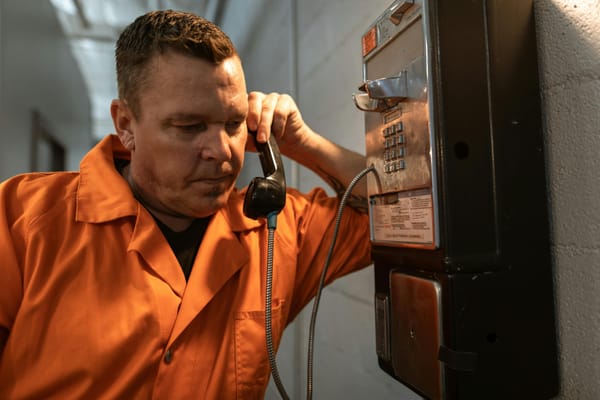Partnerships And Trust Go Long Way To Securing Financing For Broadband Projects, Panelists Say
Broadband Breakfast panelists wrestle with the challenge of financing broadband infrastructure projects.
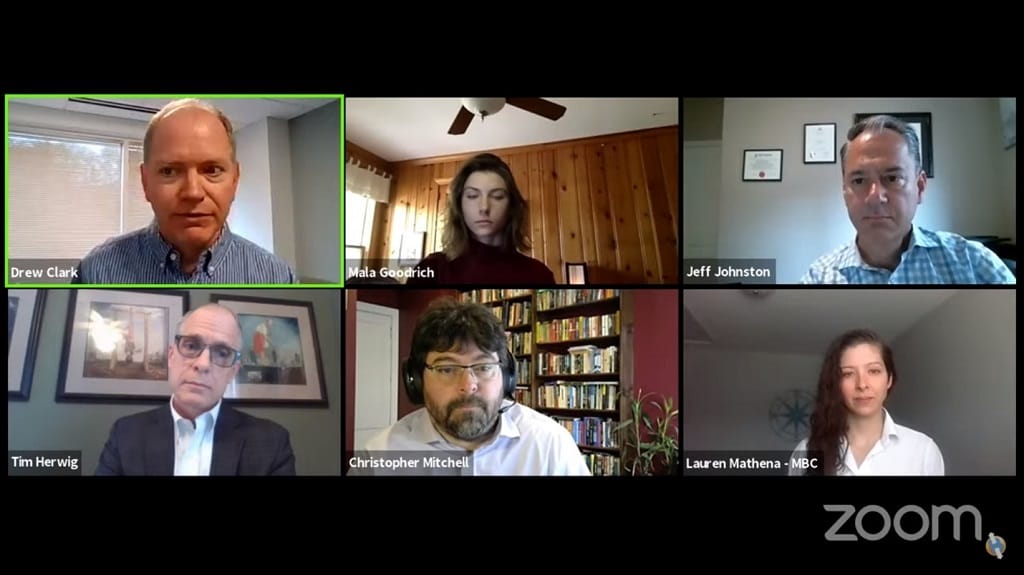
April 16, 2021 – Financing broadband projects requires real human relationships among everyone involved, said Broadband Breakfast experts Wednesday.
The weekly panel addressed the challenge of financing broadband infrastructure. Billions of federal dollars are making their way to expand internet access across the country, including the $9.3 billion Rural Digital Opportunity Fund, the $3.2 billion Emergency Broadband Benefit program and the $7 billion Emergency Connectivity Fund. There is significant funding to be spent, but it’s not always as simple as receiving a check in the mail from the government.
Getting the necessary funds to build broadband networks — whether they are private service providers like Comcast, electric co-ops or municipal-owned networks — often requires financing with banking institutions or other means of funding.
“You really want to strike a deal with someone that you can trust, who you think has your community’s interests in mind,” said Christopher Mitchell, director of the Institute for Local Self Reliance’s Community Broadband Network Initiative. “Human relationships are important, and often are a precursor to striking any of these sorts of deals.”
He mentioned unique ways that companies and communities can collaborate to build broadband networks.
For example, he referenced some long-term agreements in Minnesota between localities and CTC – Consolidated Telephone Company. The localities would pay for and own fiber-to-the-home networks that are operated by the CTC. “That can really help for operators that have the capacity to do more work, but may be at their lending or borrowing limits,” Mitchell said.
Internet Service Providers “can work with a community that would take on the debt in order to build the network and then offer, whether that’s exclusive, whether that’s permanently exclusive, or timed-exclusive, that’s one way,” Mitchell said.
Partnering with anchor institutions
Another method is for providers to partner with communities or schools to build networks that are owned by the company but paid for by the community or school with state or federal funding, such as the company Clearnetworx in Colorado.
“ISPs sometimes have to build those relationships and have creative ideas to make these things happen,” Mitchell said.
“When I think about the creation of MBC back in 2004, I think it was really all about leadership and relationship and good timing,” echoed Lauren Mathena, director of economic development and community engagement at Mid-Atlantic Broadband (MBC). On grant processes and getting the necessary financing, she said “the biggest thing is building those relationships and keeping that determination, and if you haven’t started, start today, because it is a process.”
Many smaller banks often lend out for broadband projects, sometimes even banding together if they hit their limits, because they see it as a wholistic community development, explained Tim Herwig, district community affairs officer at the Office of the Comptroller of the Currency.
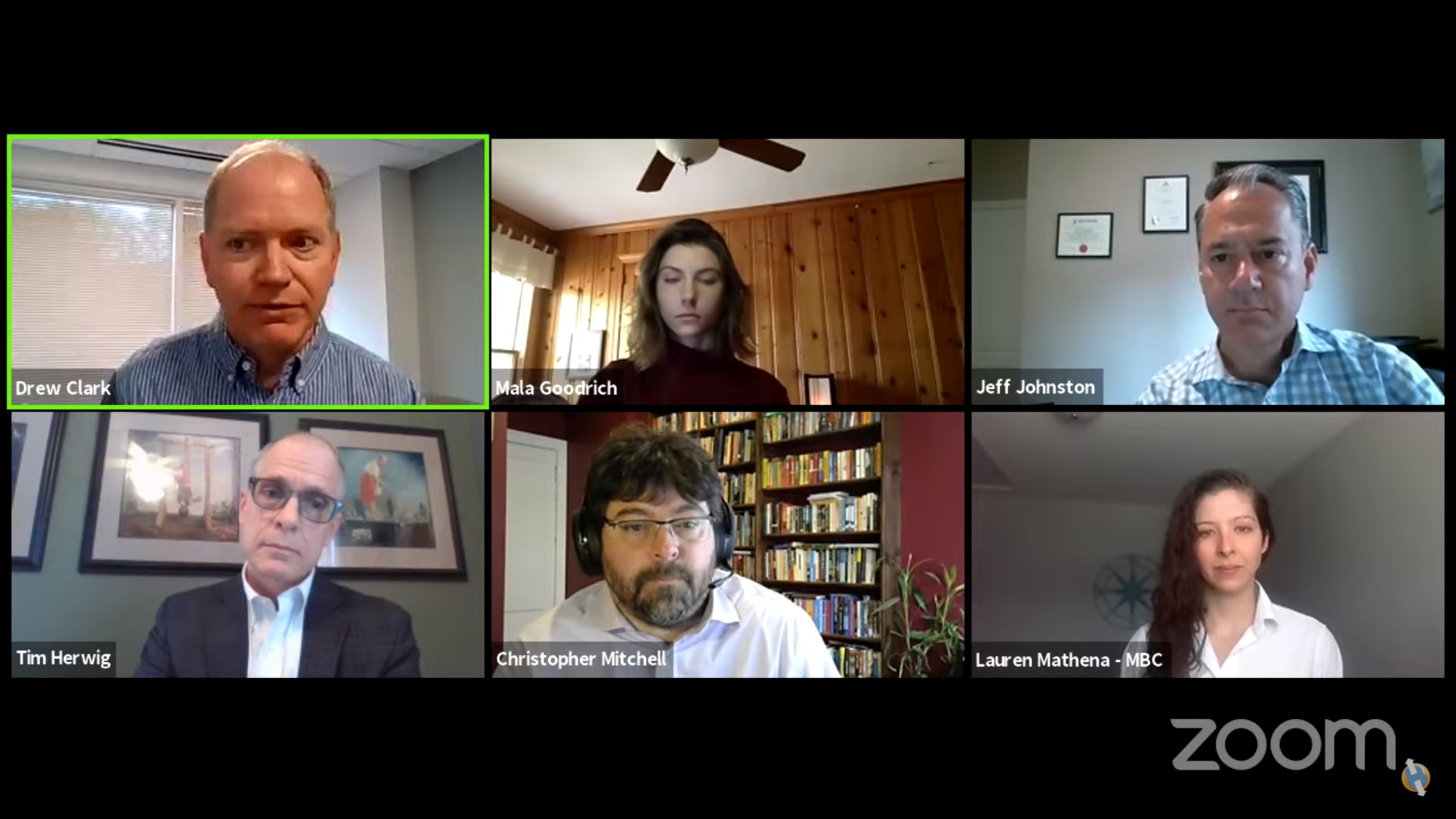
“A lot of these banks are locally-owned, the bank president, the members of the board, sit in the pew at church next to customers,” Herwig said. “Their kids go to the same schools together, they eat in the same restaurants, they go jogging down the same streets, right? They have a deep sense of corporate community responsibility. They see broadband as a gateway to the financial security and future of the communities where they serve,” he said.
High cost challenges
“The big challenge in a lot of these markets for rural operators is the economics of providing service in high-cost areas just don’t pencil out,” said Jeff Johnston, lead communications economist at CoBank, a private bank that focuses on services in agriculture and infrastructure for rural areas.
In addition to getting the upfront funding to building the infrastructure, there is also the operating costs to consider, and for some areas that’s not feasible without extra support, he said. “It’s one thing to get support up front to build a network in a high-cost area, but there’s on going expenses to managing the network,” he said.
Johnston also mentioned financial issues that may occur in federal reverse auction programs such as RDOF. “They’re great programs, first of all, but I also think operators going into these reverse auctions don’t overextend themselves,” he said. “Be realistic in what you think you can do operationally and financially.”
For MBC, which operates in Virginia, they pair funding with state and federal programs, such as the 1998 national tobacco settlement through the Virginia Tobacco Region Revitalization Commission, Mathena said. “We’ve been able to pair state and federal grant applications together, so that we’re using state dollars to help build that match, so that’s not just coming from MBC’s revenue,” she said.
Our Broadband Breakfast Live Online events take place every Wednesday at 12 Noon ET. You can watch the April 14, 2021, event on this page. You can also PARTICIPATE in the current Broadband Breakfast Live Online event. REGISTER HERE.

Wednesday, April 14, 2021, 12 Noon ET — “Less Than a Billion: Financing Broadband Infrastructure”
- Congress has appropriated $3.2 billion for the Emergency Broadband Benefit and $7.2 billion for the Emergency Connectivity Fund, and more is being discussed. But internet projects still face financial constraints and regulatory hurdles in navigating the maze to obtain broadband infrastructure financing. This panel will consider funding and cost issues from the perspective of a broadband builder. How can broadband entities most effectively deploy private and public financing to meet increasing high-speed connectivity needs?
Panelists:
- Jeff Johnston, Lead Communications Economist at CoBank
- Tim Herwig, District Community Affairs Officer at the Office of the Comptroller of the Currency (OCC)
- Christopher Mitchell, Director of the Institute for Local Self Reliance’s Community Broadband Network Initiative
- Lauren Mathena, Director of Economic Development and Community Engagement at Mid-Atlantic Broadband (MBC)
- Drew Clark (moderator), Editor and Publisher, Broadband Breakfast
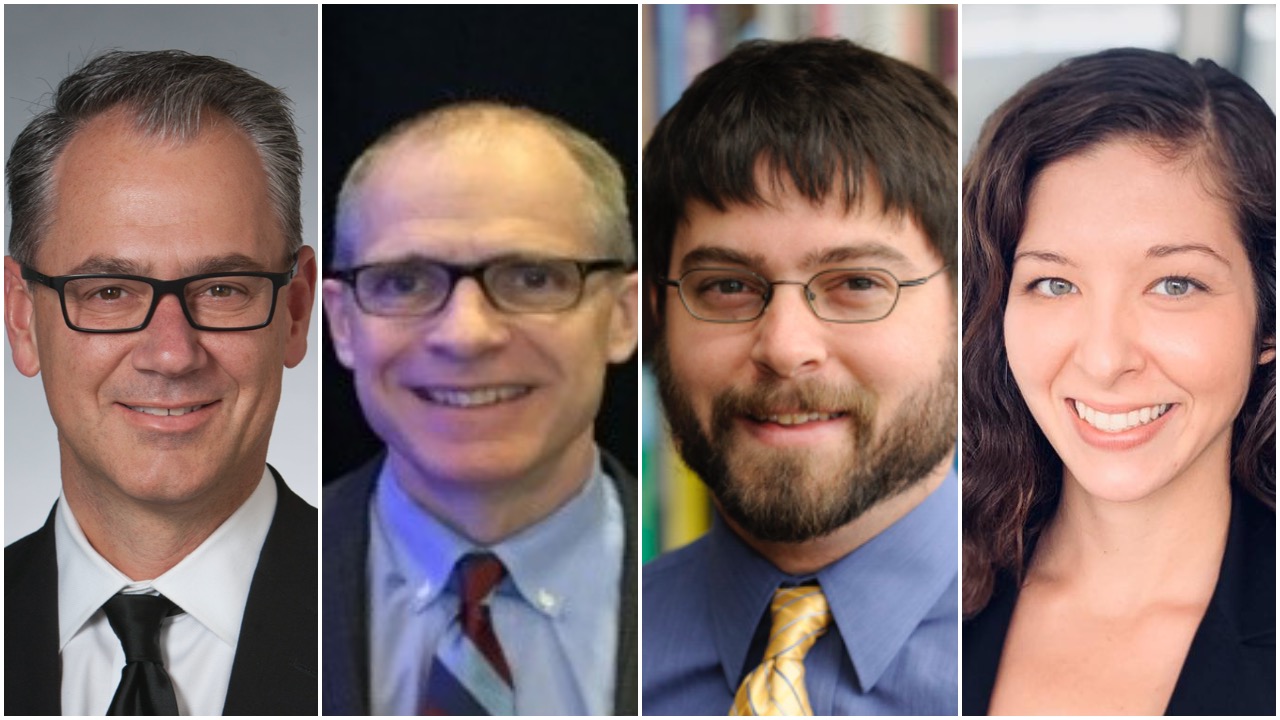
Jeff Johnston is a lead communications economist in CoBank’s Knowledge Exchange research division, where he focuses on the communications industry. His work revolves around identifying emerging technologies, business models, risks and opportunities within the industry, and providing strategic analyses to both internal and external stakeholders. Prior to joining CoBank in 2018, Mr. Johnston was an equity analyst covering the tech, media and telecom sectors. Jeff has also held various senior management positions in the telecommunications industry. He earned his Bachelor of Science degree from York University and he is also CFA charterholder.
Timothy Herwig is a District Community Affairs Officer with the Office of the Comptroller of the Currency (OCC). He is officed in Chicago. Among other responsibilities, Herwig advocates for community reinvestment by providing technical assistance to banks interested in financing rural broadband infrastructure and rural ISPs looking for private sources of debt or equity financing. The OCC is an independent bureau of the U.S. Department of the Treasury. The OCC charters, regulates, and supervises all national banks, federal savings associations, and federal branches and agencies of foreign banks.
Christopher Mitchell currently serves as the director of the Institute for Local Self Reliance’s Community Broadband Network Initiative. His work focuses on helping communities ensure that the telecommunications networks upon which they depend are accountable to the community. He was honored as one of the 2012 Top 25 in Public Sector Technology by Government Technology, which honors the top “Doers, Drivers, and Dreamers” in the nation each year.
Lauren Mathena is the Director of Economic Development and Community Engagement at Mid-Atlantic Broadband (MBC). In her role, Mathena serves as a regional ecosystem builder and represents MBC to a variety of local and state partners, including Southern Virginia’s economic developers who rely on MBC’s network for business attraction, retention and expansion. She is currently leading program development for the SOVA Innovation Hub, a 501(c)3 non-profit created in early 2020 with investments by MBC and Microsoft TechSpark.
WATCH HERE, or on YouTube, Twitter and Facebook.
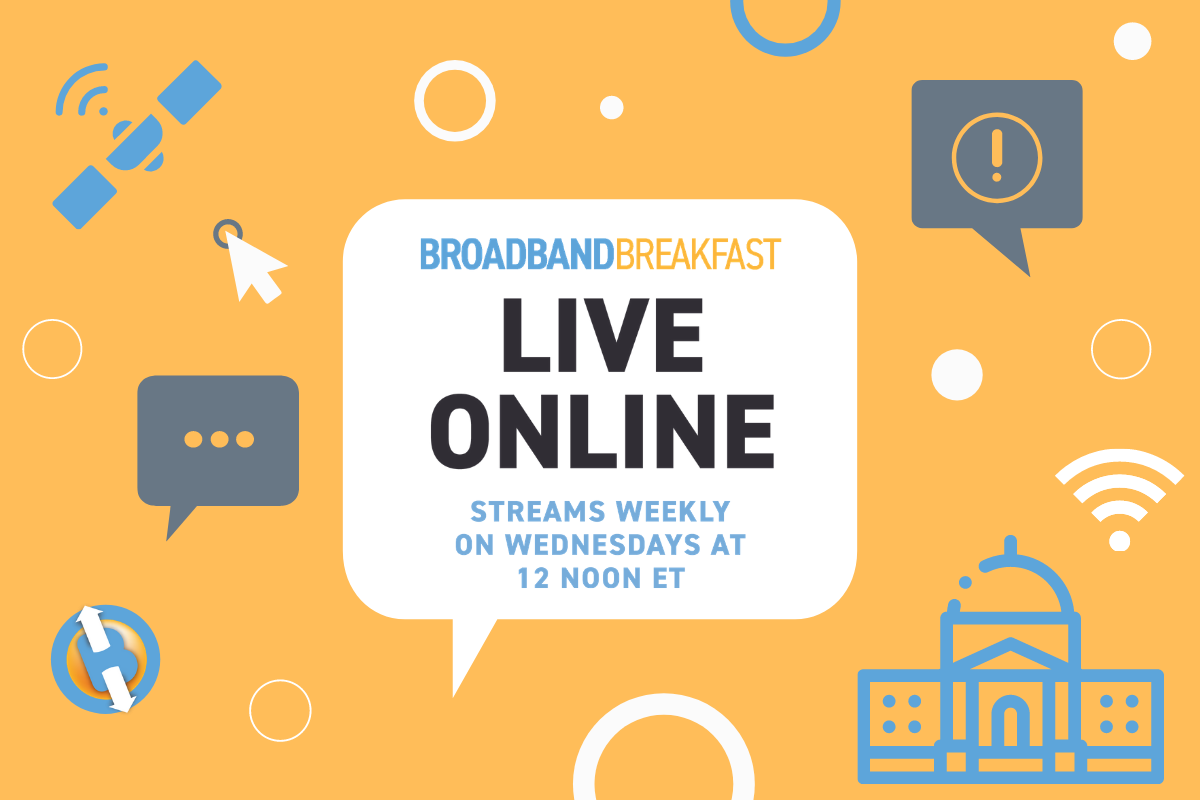
As with all Broadband Breakfast Live Online events, the FREE webcasts will take place at 12 Noon ET on Wednesday.
SUBSCRIBE to the Broadband Breakfast YouTube channel. That way, you will be notified when events go live. Watch on YouTube, Twitter and Facebook.
See a complete list of upcoming and past Broadband Breakfast Live Online events.




